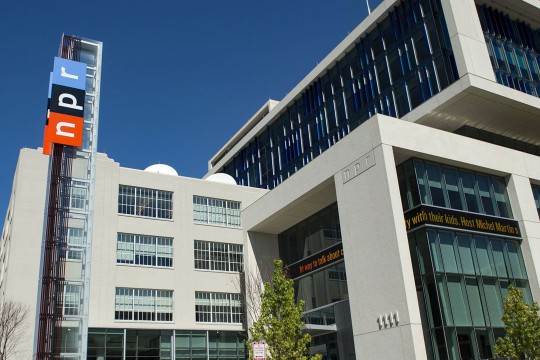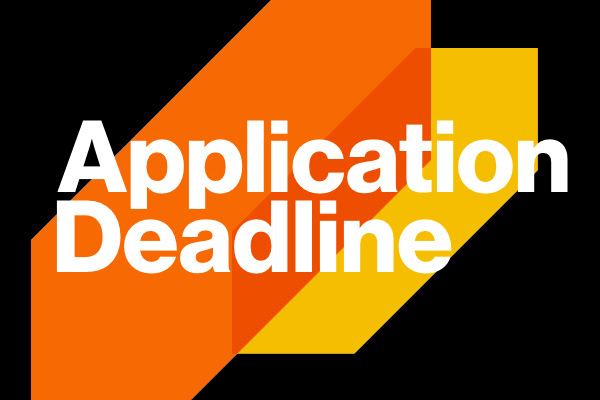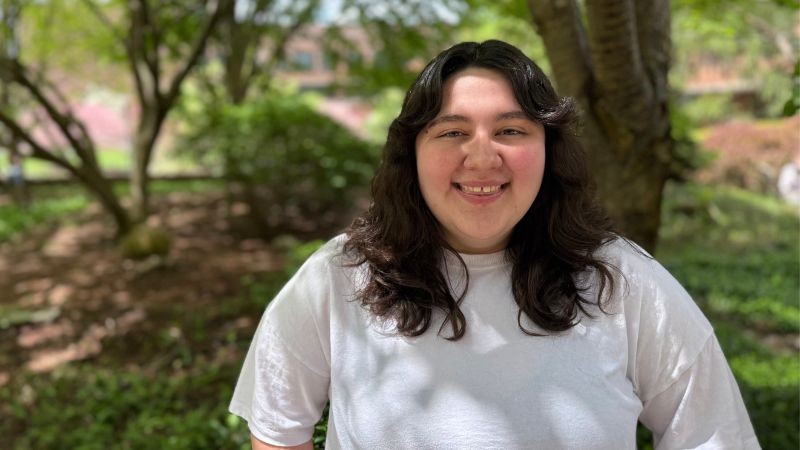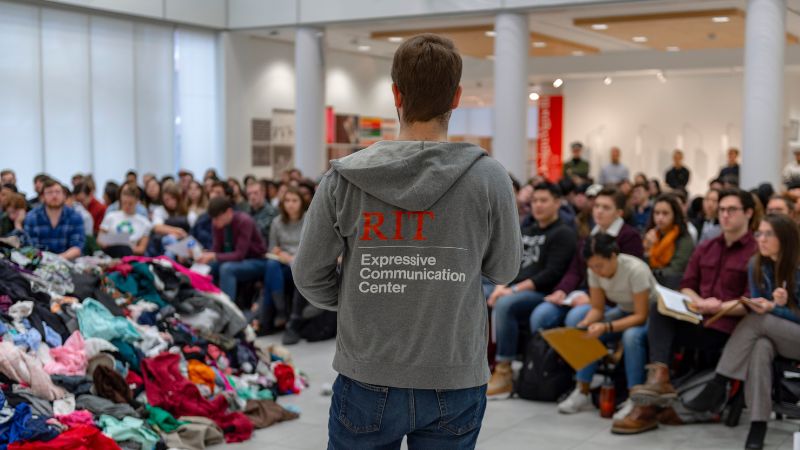Communication Bachelor of Science Degree

Communication
Bachelor of Science Degree
- RIT /
- Rochester Institute of Technology /
- Academics /
- Communication BS
Overview for Communication BS
Why Study Communication at RIT?
Hands-On Experience: Gain real-world career experience that sets you apart from the competition by participating in cooperative education.
Career Readiness: Attain the key competencies and advanced skills necessary to secure a rewarding position in the field of communication.
A Customized Degree: Round out your degree with professional core courses in areas as diverse as design, photography, marketing, health care, programming, and engineering.
Teaching Partnership Program Available: 4+1 or 3+2 programs enable you to earn your bachelor’s degree at RIT and a master’s degree in education at one of our partner universities.
Accelerated Bachelor’s/Master’s Available: Earn both your bachelor’s and your master’s in less time and with a cost savings, giving you a competitive advantage in your field.
Developing productive relationships, managing teams, analyzing audiences, creating effective messages, and understanding media are key competencies needed for successful communication professionals. RIT’s bachelor's of communication prepares you in the theory, research, and practical application needed to develop these skills. You will graduate ready for a successful career in communication. The degree’s strong focus on undergraduate research also prepares you for graduate work in communication and related academic disciplines.
RIT’s Bachelor of Science in Communication
Customize your communication BS by taking professional core courses from RIT’s nine colleges, in areas as diverse as design, photography, marketing, health care, programming, and engineering, to name a few. This unique combination of coursework allows you to explore the breadth of the communication field while studying other subject areas of professional or personal interest. Your BS in communication will prepare you for a variety of careers, ranging from traditional corporate communication to entrepreneurial start-up environments.
Take courses in communication theory, visual communication, public speaking, mass communication, communication law and ethics, technology-mediated communication, and research methods. Complete a professional core from one of the many minors across the university, or you may design your own. Electives and liberal arts courses complete the curriculum. Complement your classroom work by completing one semester of cooperative education that deepens your knowledge of the communication field while you gain hands-on work experience that prepares you for a full-time position after graduation.
Every student in the School of Communication is assigned a professional academic advisor and a faculty mentor. Professional advisors assist with course planning and registration. The faculty mentor provides advising on career development and planning, including information about research opportunities, graduate school, and jobs. Peer mentors, who are upper-level advertising and public relations students, are also available to answer questions about classes, clubs on campus, student-run activities, and other matters from the student’s perspective. For more information, please refer to the college's academic advising page.
Option
The communication BS offers a journalism option that enables you to enhance your communication degree with skills for careers in prepare for careers in multimedia storytelling, digital production, news reporting and editing, and digital content creation and management. You'll learn to gather information, critically assess its importance, craft well-written content, and merge both verbal and visual data to effectively communicate news stories and digital content across diverse media channels.
RIT’s Pre-Law Program
Law schools welcome applications from students majoring in a wide range of academic programs. RIT’s pre-law program will help you navigate the admission process for law school, explore a range of legal careers, and guide you through course selection to ensure you build the skills and competencies required of competitive law school applicants. The program is open to students in all majors who are interested in pursuing a career in law.
Furthering Your Career in Communication
Combined Accelerated Bachelor’s/Master’s Degrees
Today’s careers require advanced degrees grounded in real-world experience. RIT’s Combined Accelerated Bachelor’s/Master’s Degrees enable you to earn both a bachelor’s and a master’s degree in as little as five years of study, all while gaining the valuable hands-on experience that comes from co-ops, internships, research, study abroad, and more. Learn more about our accelerated bachelor’s/master’s degrees and how you can prepare for your future faster.
- Communication BS/Sustainable Systems MS: In this combined accelerated dual degree, you'll earn your communication BS and your sustainable systems MS in less time than pursuing each degree individually. Gain the scientific knowledge and communication prowess necessary to bridge the gap between sustainable solutions and public understanding, preparing you for impactful roles in environmental advocacy, corporate sustainability, and policy development.
- +1 MBA Early Acceptance Pathway: Successful RIT applicants who are offered admission into the BS degree in communication as an incoming first-year student may also be offered conditional early acceptance into the +1 MBA Early Acceptance Pathway. This option enables you to earn both your BS degree and an MBA in as little as five years of study. Learn how the +1 MBA Early Acceptance Pathway can help you add a competitive advantage to your studies.
- +1 MBA: Students who enroll in a qualifying undergraduate degree have the opportunity to add an MBA to their bachelor’s degree after their first year of study, depending on their program. Learn how the +1 MBA can accelerate your learning and position you for success.
3+3 Accelerated BS/JD Programs
RIT has partnered with Syracuse University’s College of Law and University at Buffalo School of Law to offer accelerated 3+3 BS/JD options for highly capable students. These programs provide a fast track to law school where you can earn a bachelor’s degree at RIT and a Juris Doctorate degree at Syracuse University or University at Buffalo in six years. Interested students may apply to the option directly, with successful applicants offered admission to RIT and conditional acceptance into either Syracuse University’s College of Law or University at Buffalo School of Law. RIT's communication degree is one of the approved majors for the 3+3 option. Learn more about Accelerated Law 3+3 Programs.
RIT’s Teaching Partnership Programs
Whether your goal is to go into early childhood or elementary education, become a secondary education teacher with a content area specialty at the middle or high school level, or work in the higher education or counseling fields, RIT’s partnership programs with local universities provide a guided pathway to a career in teaching. These 4+1 or 3+2 programs enable you to earn your bachelor’s degree at RIT and a master’s degree in education at one of our partner universities. As you progress, you’ll benefit from focused academic advising, career exploration opportunities, and resources for research, learning, and skill development. RIT's communication degree is eligible for RIT’s Teaching Partnership Programs.
-
Join Us for Accepted Student Open House
Visit campus on March 28 or April 11 to meet faculty, tour campus, and ask your questions.
-
First-Year Applications Due Soon
Apply by Jan. 1 for Early Decision II and by Jan. 15 for Regular Decision.
Careers and Cooperative Education
Typical Job Titles
| Social Media Manager | Corporate Communications Specialist | Content Writer |
| Digital Media Specialist | Community Relations Specialist | Event Coordinator |
| Brand Strategist | Customer Success Manager | Journalist |
| Podcast Producer | Marketing Communications Manager | Fundraising Coordinator |
| Nonprofit Communications Manager | Campaign Manager | Speechwriter |
| Crisis Communications Specialist |
Industries
-
Construction
-
Museum
-
Higher Education
-
Government (Local, State, Federal)
Cooperative Education
What’s different about an RIT education? It’s the career experience you gain by completing cooperative education and internships with top companies in every single industry. You’ll earn more than a degree. You’ll gain real-world career experience that sets you apart. It’s exposure–early and often–to a variety of professional work environments, career paths, and industries.
Co-ops take your knowledge and turn it into know-how. A liberal arts co-op provides hands-on experience that enables you to apply your knowledge in professional settings while you make valuable connections between course work and real-world applications.
Students in the communication degree are required to complete one cooperative education experience.
Featured Work and Profiles
-
Four Years and a Full Experience: From career-launching co-ops to clubs and research, this 2025 grad made the most of every moment at RIT
Hailey Fowler began at RIT like so many other first-year college students, slightly shy but super psyched to begin her college journey. At RIT, she soon connected with experiences that gave her an...
Read More about Four Years and a Full Experience: From career-launching co-ops to clubs and research, this 2025 grad made the most of every moment at RIT -
RIT Alumna Thrives in Real Estate Law at Prestigious NYC Firm
After passing the New York state bar exam, Shakierah Smith became a real estate associate at Fried, Frank, Harris, Shriver & Jacobson, a law firm in New York known nationally for its...
Read More about RIT Alumna Thrives in Real Estate Law at Prestigious NYC Firm
Curriculum for 2025-2026 for Communication BS
Current Students: See Curriculum Requirements
Admissions and Financial Aid
First-Year Admission
First-year applicants are expected to demonstrate a strong academic background that includes:
- 4 years of English with a strong performance is expected.
- 3 years of social studies and/or history with a strong performance is expected.
- 3 years of math is required and must include algebra, geometry, and algebra 2/trigonometry.
- 2-3 years of science.
Transfer Admission
Transfer applicants should meet these minimum degree-specific requirements:
- A minimum of college algebra is required.
Financial Aid and Scholarships
100% of all incoming first-year and transfer students receive aid.
RIT’s personalized and comprehensive financial aid program includes scholarships, grants, loans, and campus employment programs. When all these are put to work, your actual cost may be much lower than the published estimated cost of attendance.
Learn more about financial aid and scholarships
Accreditation
Related News
-
December 19, 2025

Communication Students Serve as Conference Media Team
Students from RIT’s School of Communication served as the official media team for the New York State School Counselors Association conference, held last month at the Rochester Riverside Convention Center.
-
December 12, 2025

U.S. State Department changes official font from Calibri back to Times New Roman
NPR speaks to Kristen Shinohara, associate professor in the School of Information, about why fonts matter.
-
November 12, 2025

Communication grad connects the globe
As the CEO of Pacific Telecommunications Council, Brian Moon '00 (communication) is proud to help foster community in an industry that makes a tangible impact.
Contact
- Heather Roth
- Assistant Director of Recruitment and Retention Outreach
- Dean’s Office
- College of Liberal Arts
- 585‑475‑5456
- hmrgla@rit.edu
School of Communication

















